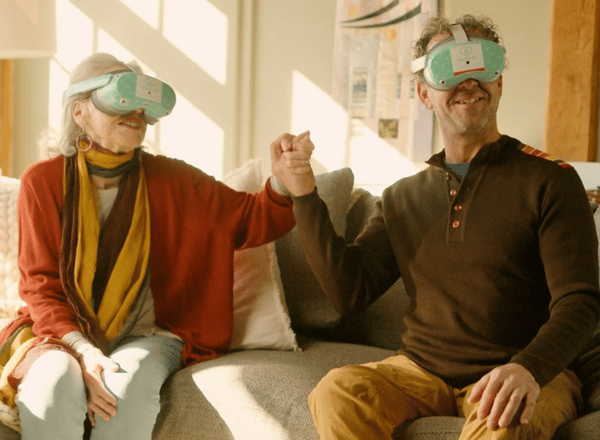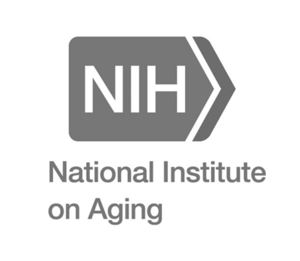Rendever just completed the largest clinical trial on VR for dementia and family caregiving.
This study examines the impact of using personalized virtual reality (VR) with older adults with mild cognitive impairment (MCI) or mild to moderate dementia with a family member who lives at a distance.
This longitudinal study on VR for dementia took 3 years to complete, included hundreds of hours of participant sessions, and is actively being analyzed for scientific publication. These are some of the initial findings.
By offering shared, immersive experiences tailored to the needs of older adults with dementia, Rendever’s VR platform addresses critical gaps left by traditional video or phone calls. Compared to video calls, Rendever’s VR platform fostered improved relationship quality (p=0.006), strengthened social networks (p=0.03), and created more joyful, memorable experiences (p=0.004) for participants with dementia. It also encouraged learning new things and exploring activities, helping seniors feel more connected to their loved ones, their communities, and the world around them. Several key metrics, such as relationship satisfaction (p=0.005), reminiscence (p<0.001), and overall positive well-being (p<0.001), significantly improved, validating the measurable impact of immersive VR on dementia care. Participants reported deeper emotional engagement especially when revisiting familiar places or sharing family photos in immersive virtual settings.
This study was supported by the National Institute on Aging.

See Early Findings
How was this research funded?
The National Institute on Aging (NIA), a division of the National Institutes of Health (NIH), awarded Rendever a Small Business Technology Transfer (STTR) Phase I grant to test the potential for impact of their virtual reality (VR) platform with residents experiencing some form of cognitive decline and their adult children who live at a distance.
Rendever’s resident engagement platform was specifically built for seniors and senior living staff to reduce social isolation by enabling older adults to check off bucket list items, revisit meaningful places from their past, and stay connected to their families across distances - all through the power of VR and shared positive experiences. The Rendever family portal allows family members to participate in customizing the experience for their loved ones through sharing personal photos, videos, and 360° footage of family events. This study will bring family members one step closer by allowing them to wear headsets simultaneously and sharing the experience, all from the comfort of their own home.
This NIH grant funded a study jointly conducted by Rendever and the University of California Santa Barbara (UCSB), to evaluate the clinical impact of VR-based virtual family engagement with this population, as well as the differences in impact across various levels of cognitive impairment (MCI, mild to moderate AD/ADRD).
About NIA
The NIA Small Business Programs manage the largest source of early-stage funding for aging-related research and development (R&D).
Each year, NIA provides more than $100 million in R&D grants to small businesses through the Small Business Innovation Research (SBIR) and Small Business Technology Transfer (STTR) programs.

